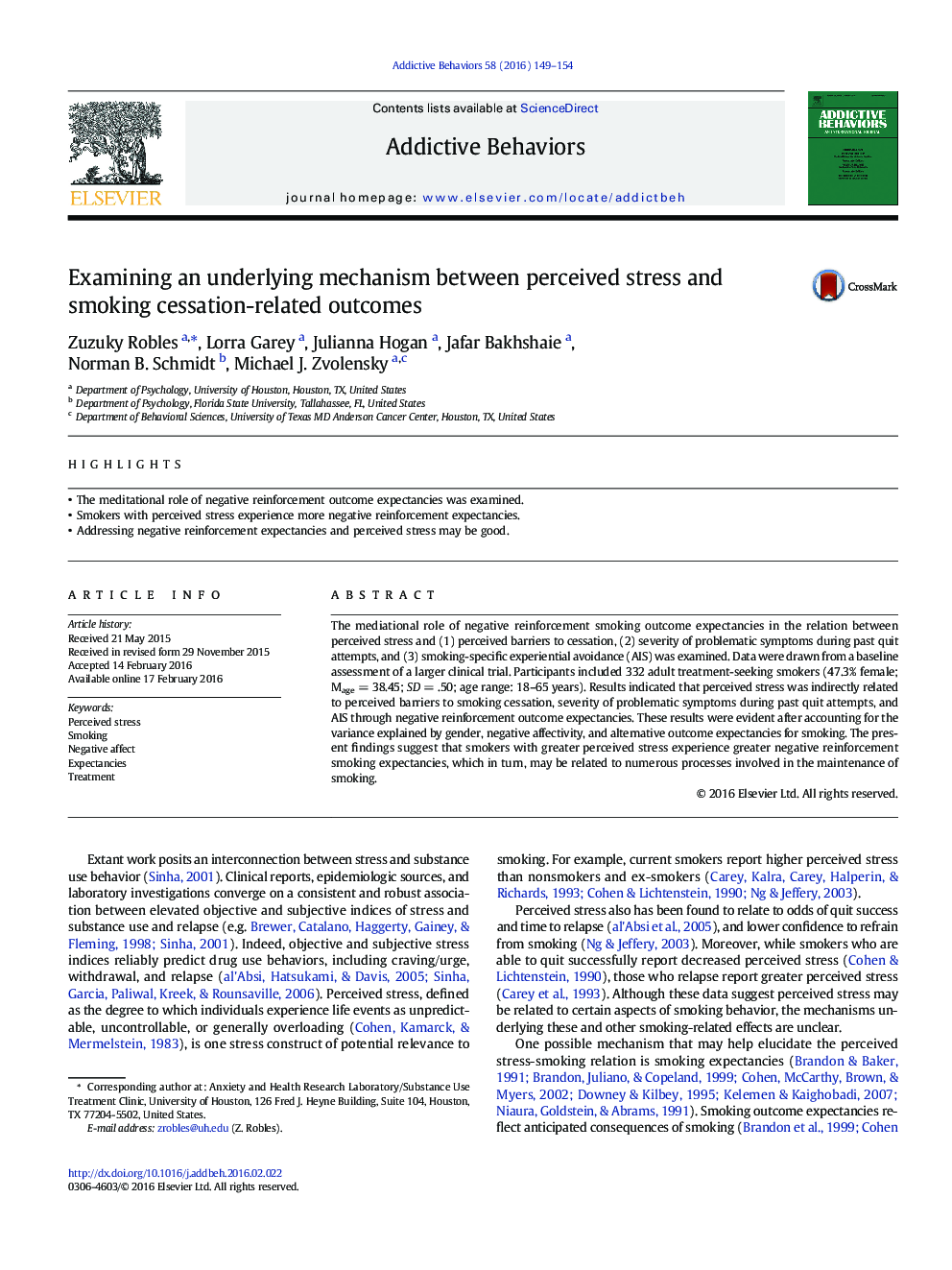| Article ID | Journal | Published Year | Pages | File Type |
|---|---|---|---|---|
| 7260285 | Addictive Behaviors | 2016 | 6 Pages |
Abstract
The mediational role of negative reinforcement smoking outcome expectancies in the relation between perceived stress and (1) perceived barriers to cessation, (2) severity of problematic symptoms during past quit attempts, and (3) smoking-specific experiential avoidance (AIS) was examined. Data were drawn from a baseline assessment of a larger clinical trial. Participants included 332 adult treatment-seeking smokers (47.3% female; Mage = 38.45; SD = .50; age range: 18-65 years). Results indicated that perceived stress was indirectly related to perceived barriers to smoking cessation, severity of problematic symptoms during past quit attempts, and AIS through negative reinforcement outcome expectancies. These results were evident after accounting for the variance explained by gender, negative affectivity, and alternative outcome expectancies for smoking. The present findings suggest that smokers with greater perceived stress experience greater negative reinforcement smoking expectancies, which in turn, may be related to numerous processes involved in the maintenance of smoking.
Related Topics
Life Sciences
Neuroscience
Behavioral Neuroscience
Authors
Zuzuky Robles, Lorra Garey, Julianna Hogan, Jafar Bakhshaie, Norman B. Schmidt, Michael J. Zvolensky,
